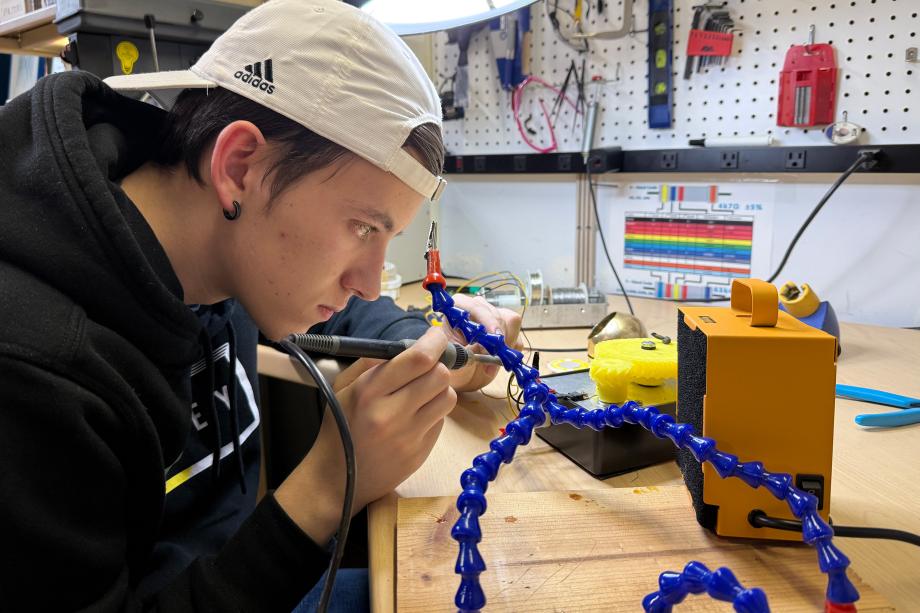Cybersecurity student dreams big
Lochlan McElroy’s website reads “student, builder, hacker, dreamer!” And this cybersecurity student is learning, practicing, working and dreaming … big!
“Cybersecurity is a behemoth of a field that students need to get hands on to learn,” says McElroy. “You have to keep up because things change fast, but that’s part of the fun, too.”
Having recently completed his first year at Western, McElroy is pairing his coursework with experience-driven learning opportunities to prepare for the demands of his chosen field. He works part-time as a WMU computer technician and participates in two cybersecurity student organizations—WMU Computer Club and Western Research Advisory for Vulnerabilities, Exploits, and Networks (WRAVEN).
McElroy is the incoming president of both clubs, which are open to all WMU students. He is the founder of WRAVEN, which focuses on student-led cybersecurity research, workshops, and sharing findings with the community. Students get experience with real security tools, learn how to write reports, and practice skills.
“I saw how new the cybersecurity program at WMU is, which led me to the school in the first place,” says McElroy. “My roommate, Finley Burns, and I really wanted to create a space for students to get really hands on with hardware and software. Our faculty advisor has been super supportive and always is willing to listen to our crazy ideas.”
McElroy first encountered cybersecurity during high school in Illinois. After participating in a student club and a CyberPatriot competition, he was hooked and even completed an internship in IT before coming to Western.
During his first year in college, his favorite course was Ethics and Impacts, which covers the multitude of ethical challenges faced in the cybersecurity field. He also took advantage of the cybersecurity program’s preparation for Security+TIA certification. The WMU cybersecurity program prepares you for Network+ and Security+ certification exams, which are two certifications employers seek in their entry-level positions.
“I’m really into threat intelligence and forensics. I like digging through data to figure out who did what and how. I’m also interested in how AI is changing how hackers and defenders work, there’s a lot happening fast. The biggest challenge is cutting through hype and staying focused on what works in the real world.”
Looking back on his first year at Western, McElroy recognizes the influence of his College of Engineering and Applied Sciences first-year experience course instructor, Lisah Crall, senior business manager in academic affairs.
“She has been super supportive, and has always been someone I’ve gone to, for asking advice about anything, even outside of academics," says McElroy. "I highly recommend new engineering students consider ENGR -2100, as it really helps to learn what the best opportunities are in engineering.”
Looking forward to the upcoming year, McElroy is on the core planning team for the WMU Cybersecurity Summit and looks forward to serving as an undergraduate representative to the faculty senate for IT/cybersecurity.
But McElroy’s success is in large part due to his desire to also advance the skills and experiences of other students. And he encourages students to also try new things and get involved on campus.
“Don’t be afraid to mess stuff up. Break things (that you’re allowed to), fix them, ask questions, and find people who like the same weird stuff you do. No student here is an expert, and we all learn from each other just as much as we learn from our professors.”
To learn more about WMU’s cybersecurity programs, visit wmich.edu/cybersecurity.
For more WMU news, arts and events, visit WMU News online.



